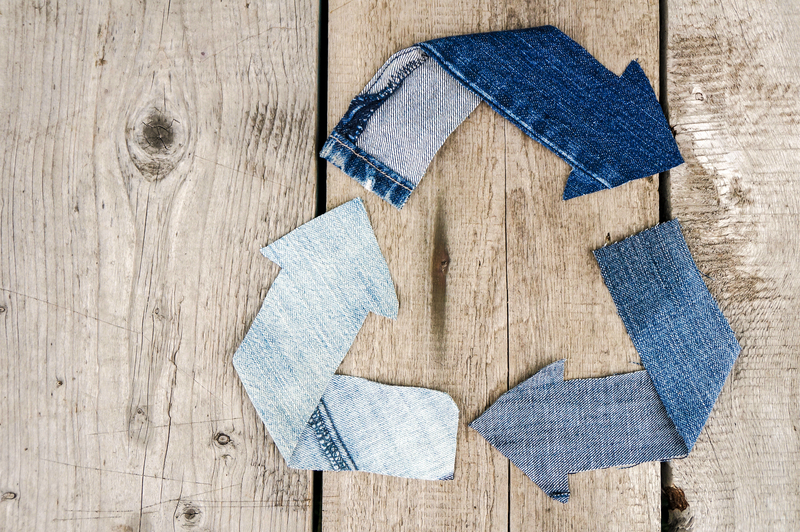Eco-Friendly Methods for Handling PPE Waste at Home and Work
The widespread use of personal protective equipment (PPE) like masks, gloves, and face shields became a global necessity during the pandemic. As awareness around hygiene increased, so did the volume of PPE waste produced in everyday environments and workplaces. While PPE has been critical in keeping people safe, its improper disposal now poses a significant challenge for the environment. As responsible citizens and conscientious businesses, it's crucial to adopt eco-friendly PPE waste handling methods. In this detailed guide, we'll explore sustainable PPE waste management strategies applicable at both home and work settings.

Understanding PPE Waste and Its Environmental Impact
PPE, or personal protective equipment, includes disposable masks, gloves, gowns, and other single-use items designed to protect individuals from infectious agents. Because most PPE is made from various plastics, it can take hundreds of years to decompose, often contributing to plastic pollution in landfills and oceans. Burning PPE also releases toxic pollutants into the air. Carefully managing and processing PPE waste is therefore not just a matter of cleanliness but also one of environmental stewardship.
The Scope of the PPE Waste Problem
- Single-use masks: On average, over 129 billion disposable masks are used globally each month.
- Gloves: Widespread use in healthcare and daily environments further adds to the waste pile.
- Workplace PPE: Many workplaces use additional PPE such as face shields, gowns, and shoe covers, all contributing to the growing problem.
Without eco-friendly PPE waste disposal methods, the negative impact on wildlife, soil, and water resources will continue to escalate. So, how can individuals and organizations act responsibly and make a positive difference?
Eco-Friendly PPE Waste Management at Home
1. Choose Reusable PPE Where Possible
- Opt for Cloth Masks: Sustainable and washable cloth masks are a viable alternative to disposables for everyday use. Make sure they meet safety guidelines.
- Reusable Gloves: Nitrile or latex gloves designed for multiple uses can reduce waste at home, especially for non-medical tasks like cleaning.
By making the switch to reusable PPE products for non-medical situations, households can significantly cut down on single-use waste.
2. Safe and Sustainable Disposal of Used PPE
- Don't Litter: Never discard used PPE in open environments, streets, or water bodies.
- Bag and Seal: Place all used disposable PPE in a dedicated, lined, and tightly sealed bag before putting it in your trash bin.
- Label Waste: Mark bags containing PPE waste to prevent accidental exposure to sanitation workers.
- Wash Hands: After handling used PPE, always wash your hands with soap and water.
Whenever municipal PPE waste collection or recycling initiatives are available, participate actively to ensure your waste is processed responsibly.
3. Participate in Local Recycling and Collection Programs
- Check Local Guidelines: Many communities are launching special bins or take-back programs for used masks and gloves. Follow municipal waste management updates.
- Mail-in Programs: Some companies offer PPE recycling by mail for households. Collect and send used PPE to certified programs so it can be processed into useful products.
4. DIY Recycling and Upcycling Ideas
- Non-contaminated PPE: For unused or non-infectious PPE, consider creative reuse, such as converting masks into art projects or using clean face shields as book covers, plant guards, or safety barriers.
Note: *Never attempt to recycle contaminated or medical-use PPE with regular recyclables. These materials require specialized handling to prevent health risks.*
Eco-Friendly PPE Waste Practices at Workplaces
1. Develop and Implement PPE Waste Management Policies
- Set Up Segregated Bins: Provide clearly labeled and color-coded bins for PPE waste at multiple workplace locations.
- Awareness Training: Train all staff on proper disposal practices and the significance of eco-friendly PPE waste management.
- Appoint Green Teams: Assign responsibility to a team or personnel to monitor and improve PPE waste handling practices.
2. Adopt Sustainable PPE Options
- Source Eco-Friendly PPE: Choose products made from biodegradable or recycled materials where applicable. Many suppliers now offer compostable masks and gloves.
- Promote Reusables: Supply workers with reusable options, such as washable face masks and protective clothing.
3. Connect with Professional Waste Management Services
- Work with Certified Companies: Partner with specialized firms that offer secure PPE waste pickup and environmentally sound disposal or recycling.
- Track and Audit: Review the amount and type of PPE waste generated and disposed of, and set goals to reduce it.
4. Support Research and Innovation in PPE Recycling
- Collaborate with Innovators: Encourage partnerships with startups or research institutions developing advanced recycling or upcycling solutions for PPE.
- Pilot New Initiatives: Take part in pilot programs for compostable PPE, advanced material separation, or closed-loop recycling systems.
Advanced Eco-Friendly PPE Waste Solutions
1. Biodegradable and Compostable PPE
As demand grows for sustainable PPE waste management solutions, numerous manufacturers are developing biodegradable masks and gloves made from cellulose, bamboo, or PLA. These options break down naturally, leaving no traces of harmful microplastics. Compostable PPE, however, needs to be processed in industrial facilities--composting such waste at home is usually not recommended for safety reasons.
2. Upcycling Used PPE into Useful Products
Innovative companies are exploring ways to convert used PPE waste into construction materials, benches, and other items. These upcycling initiatives can support a greener circular economy and reduce demands for new virgin plastics.
3. Chemical and Mechanical Recycling
Certain companies have started using chemical processes to break down polypropylene (commonly found in masks and gowns) into reusable raw materials. Mechanical recycling, where PPE is shredded and reprocessed into pellets for new products, is another emerging method. These eco-conscious PPE waste treatments are currently available at scale only in select regions, but their adoption is rapidly increasing.

Best Practices for Minimizing PPE Waste Generation
1. Plan PPE Use Efficiently
- Assess and audit PPE needs at work and home to avoid overuse and unnecessary waste.
- Encourage proper storage and gentle handling of reusable PPE to maximize its lifespan.
2. Educate Yourself and Others
- Stay informed about new technologies, recycling opportunities, and eco-friendly PPE options in your area.
- Host workshops or information sessions at work about the environmental impact of PPE and sustainable alternatives.
3. Advocate for More Sustainable Solutions
- Support policies and initiatives that promote eco-friendly PPE waste management at the community and legislative levels.
- Choose businesses and organizations that prioritize sustainable waste handling practices.
Conclusion: The Future of Eco-Friendly PPE Waste Handling
Managing PPE waste responsibly is essential for both immediate public health and the long-term well-being of our planet. As individuals and organizations, embracing eco-friendly PPE waste disposal methods at home and work can greatly reduce environmental damage. By prioritizing reuse, recycling, and responsible disposal, and by supporting innovation in biodegradable PPE and advanced recycling, everyone can be a part of the solution.
Together, with informed action and community effort, we can transform the PPE waste challenge into an opportunity for greener, cleaner, and more sustainable living and working environments.
